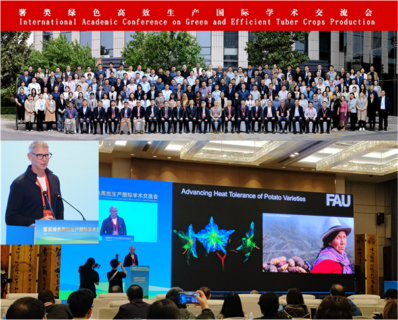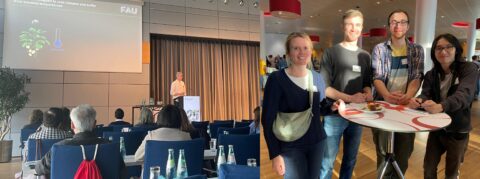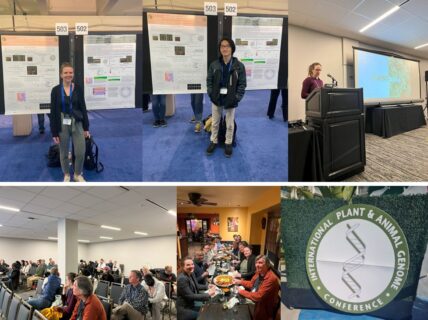Home
Research focus
Analyses of molecular mechanisms for the regulation of plant metabolism and signaling pathways of cellular communication are the focus of research at the Chair of Biochemistry. The productivity of crop plants depends to a large extent on the distribution of assimilates and nutrients between producing (source) and consuming (sink) organs. For example, mature leaves produce a surplus of assimilates that can be used to fill seeds, roots or tubers. This distribution is not static, but under developmental and environmental control. In the course of climate change, especially due to heat and drought, there is an increasing redistribution of resources, which reduces the yields of most crops. Using state-of-the-art molecular biology, cell biology, genetic, bioanalytical and bioinformatics methods, we study the so-called source-sink interaction of major crops to develop methods to make them resilient to the expected climatic changes. Here we focus on Solanum tuberosum and Manihot esculenta (potato and cassava plants), but also use model plants such as Arabidopsis thaliana to elucidate basic mechanisms. The knowledge gained is used in biotechnological approaches to adapt crop plants to climate change and to increase yields.




